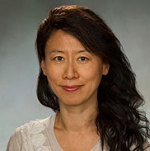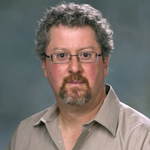The Buffalo State community has the opportunity to learn about campus scholarship in the disciplines of adult education, art education, and biology during the third Emerging Scholars Lecture Series starting this week.
Over the spring semester three faculty members will present detailed lectures about their areas of expertise and recent research. All lectures will be held from noon to 1:30 p.m. in E. H. Butler Library 210; they are free and open to the public.
"The Emerging Scholars Series provides a way to share research and scholarship with colleagues and add to the intellectual community we want to foster at Buffalo State," said Kevin Railey, associate provost and dean of the Graduate School, who is serving as the lecture series coordinator. "This particular series also gives us the opportunity to feature the outstanding work of people relatively new to the faculty."
In keeping with Buffalo State’s commitment to Year of the Teacher, each lecture touches upon education in some way.
 February 7
February 7
The series begins with Andrea Nikischer, assistant professor of adult education, who will speak on “Social Class Segregation and the STEM Career Pipeline: An Ethnographic Examination of High School Opportunity Structures.” Nikischer will discuss her research into science, technology, engineering, and mathematics (STEM) high school "opportunity structures," and college and career choices for top-performing math and science students. Nikischer discovered how segregation by social class damages the STEM pipeline for high-performing math and science students located in high-poverty, low-performing schools. She argues that not only are federal and state accountability-based school reform efforts failing to improve outcomes for students with proficiency and interest in STEM fields, but they are actually harming the students and the STEM opportunity structures. In her talk, she will recommend changes in policy and practice.
 March 21
March 21
In her lecture “Reconsidering Public Pedagogy: Media Performance and the ‘Planned Authenticity’ of Diasporic Korean Youth,” Michelle Bae, assistant professor of art education, will explore how Korean youth living in a Midwest college town engage in ambivalent practices of both identification and dis-identification with their “authentic” Koreanness. Bae said that “the liminal tactics of difference opens up possibilities for rethinking alternative (de) pedagogical sites and understanding of public pedagogy, which go beyond the conventional notion of community and identity politics.
 April 8
April 8
Robert Warren, assistant professor of biology, will discuss one aspect of climate change in his talk “Stumbling Through the Forest and the Trees—Fortuitous Insights into Climate Change Ecology from Southern Woodlands.” He will explain how ants provide better insight into woodland plant survival than the plants themselves, how trees are not as “green” as we think due to their release of greenhouse gases, and how centuries-old Native American cultivation better explains current tree distribution than climate. Such findings, Warren said, demonstrate the “importance of understanding how species interact in a rapidly changing climate, though they considerable complicate predicting those responses.”
Some content on this page is saved in PDF format. To view these files, download Adobe Acrobat Reader free.
